OCCUPATION FOR DEMENTIA PATIENTS
FRIENDLY COMPANIONS ON SOFT PAWS
Activation of the elderly with dementia – just how?
Dementia is a major challenge not only for those affected, but also for their family members and caregivers. Since there is so far no cure for people with dementia, the focus of dementia care is on improving the well-being of those affected.
In this regard it is important to create an atmosphere of appreciation, security and comfort. To achieve this, alternative treatment methods and aids are increasingly being used for dementia patients. Thus, the calming effect of cuddly toys is specifically utilized in home and inpatient care.
Plush toys for people with dementia
Behind this is the realization that people who suffer from dementia often feel better when they get the feeling that they themselves take care of something. Thanks to the employment with cuddly toys almost speechless dementia patients begin to speak single words again, and even those with word finding disorders are able to formulate fluent and situationally appropriate sentences.
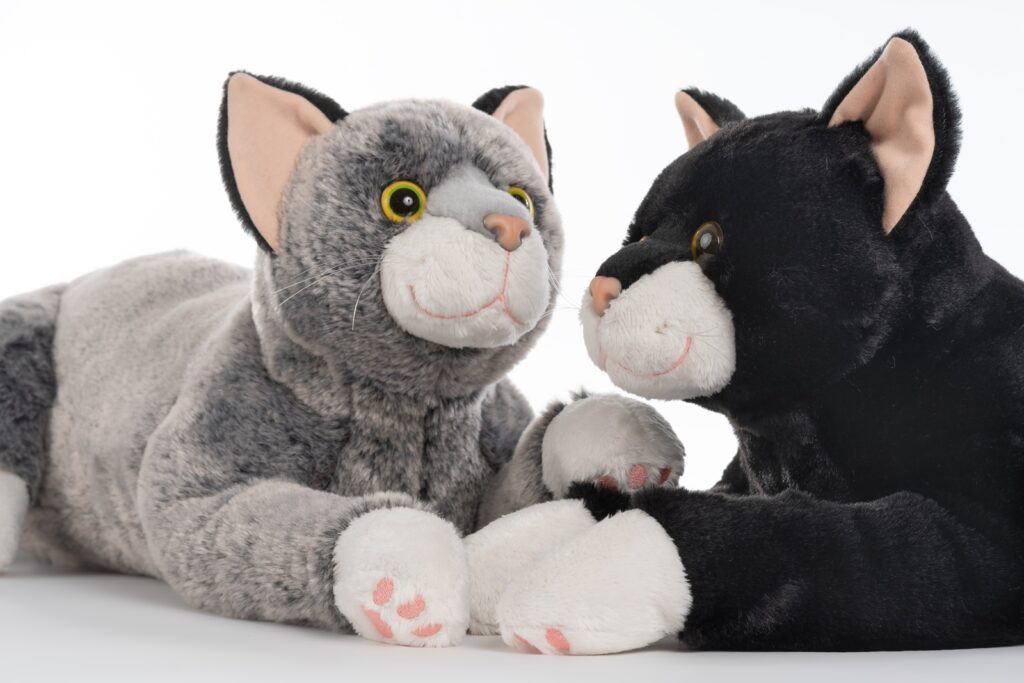
Plush toys can offer several benefits for elderly people with dementia:
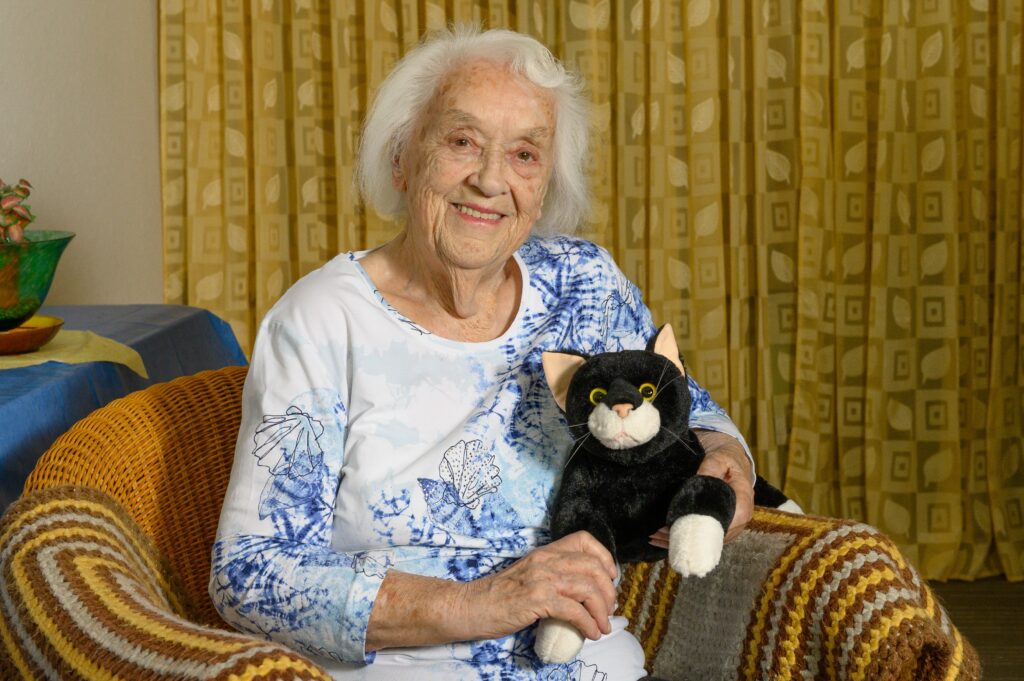
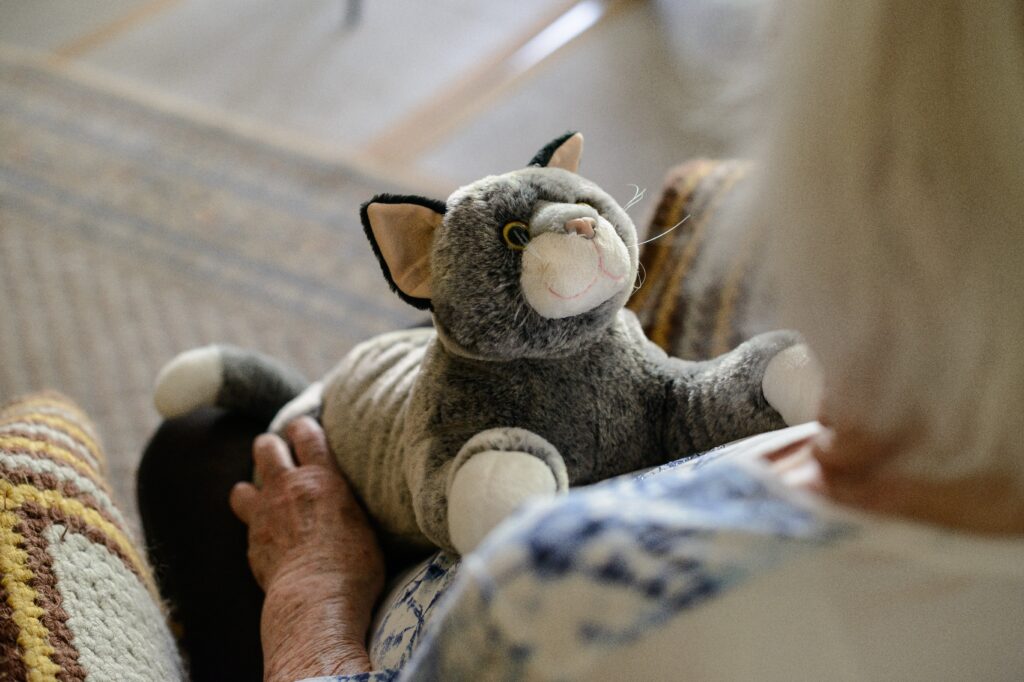
- Comfort and Companionship: Plush toys can provide comfort and companionship to individuals who may feel lonely or anxious due to dementia. The soft texture and cuddly nature of plush toys can offer a sense of security and reassurance.
- Emotional Support: Many elderly individuals with dementia experience fluctuations in mood and may feel overwhelmed by their condition. Plush toys can serve as emotional support, offering a non-judgmental presence and a source of solace during difficult moments.
- Stimulation and Engagement: Interacting with plush toys can stimulate cognitive function and encourage engagement. Activities such as talking to or holding the toy can help maintain cognitive abilities and provide sensory stimulation.
- Reduction of Agitation and Restlessness: Dementia can often lead to agitation and restlessness, especially in the later stages. Plush toys can help to soothe and calm individuals, reducing feelings of agitation and promoting relaxation.
- Familiarity and Reminiscence: Plush toys with familiar designs or characters from the individual’s past can evoke memories and encourage reminiscence. This can be particularly beneficial in promoting a sense of identity and connection to their personal history.
- Promotion of Physical Activity: Engaging with plush toys may involve physical movements such as holding, squeezing, or manipulating the toy. These activities can help promote dexterity and maintain motor skills in individuals with dementia.
- Ease of Care: Plush toys are generally low-maintenance and easy to care for, requiring minimal upkeep compared to other forms of companionship such as pets. This makes them a convenient option for elderly individuals and their caregivers.
- Non-Pharmacological Intervention: Incorporating plush toys into dementia care plans provides a non-pharmacological intervention for managing symptoms. This can reduce the reliance on medications and offer a holistic approach to promoting well-being.
Lying on the lap especially cats – our dearest pets – with their big wide eyes, snub noses and chubby cheeks invite to stroke and to care for. The needs for physical closeness, attention and responsibility are thus satisfied and provide a stimulating element for more interaction, communication and well-being.
RobiCare® Active Cats Blacky, Lucky, Ambery & Smart Cat
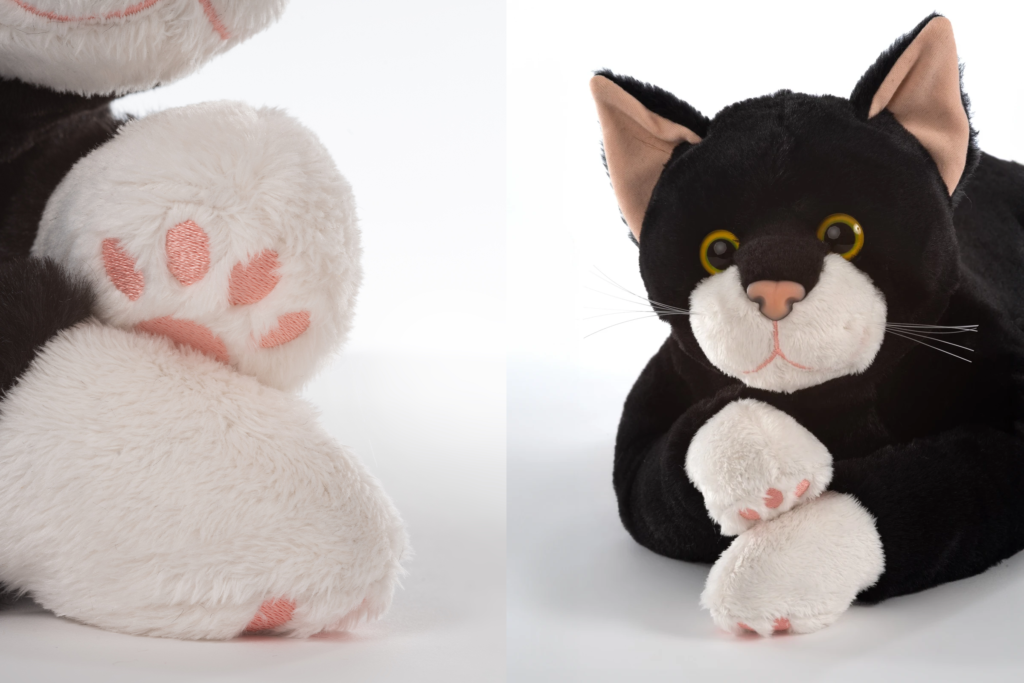
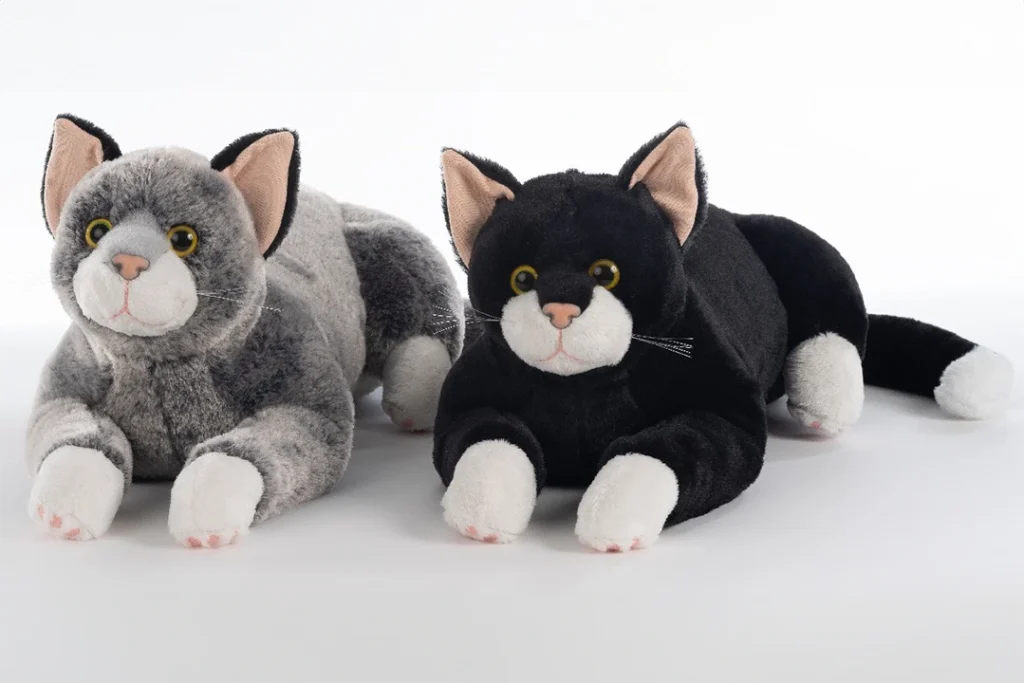

For the RobiCare® dementia therapy cats Blacky, Lucky, Ambery & Smart Cat scientific findings were decisive for the haptics, appearance, size and weight. The design of the plush toy cats is intended to stimulate sensory, cognitive and motor skills. Blacky, Lucky, Ambery & Smart Cat are ideal companions for people with dementia. Its artificial fur feels very supple and soft, the cats‘ face is friendly and inviting with big eyes and a cheerful look – just as if a child should be addressed. To give the Active Cats an authentic appearance their body length is about 45 cm, and their weight is about 1500 g (Blacky, Lucky and Ambery) respectively 1400 g (Smart Cat including the device module).
The interactive Smart Cat also has a device module. It is programmed to react automatically to movements and thus encourage interaction. As soon as the Smart Cat has been activated via the motion sensor, it produces a realistic acoustic meowing and purring sound at different intervals. If the Smart Cat is not moved, it goes into sleep mode after approx. 180 seconds.
Thanks to their weight the RobiCare® therapy cats Blacky, Lucky, Ambery & Smart Cat can be felt physically when cuddling, snuggling, nuzzling and cuddling. Lying on the lap, the weight creates a gentle pressure that helps restless people to focus and calm down. The fabrics and materials used have different structures and colours so that the senses (touch, feel and sight) of the user with dementia are stimulated. In addition, the cats‘ front paws are filled with granules to encourage playful squeezing. The RobiCare® therapy cats Blacky, Lucky, Ambery & Smart Cat also take hygiene aspects (synthetic fur washable at 30° C; the granulate filling inside can be removed for washing) and safety aspects (the zipper is „hidden“; the granulate filling can therefore only be removed with great skill) into account. The product complies with European safety regulations regarding materials, production and packaging in accordance with EN 71. Overall, the RobiCare® Active Cats Blacky, Lucky & Smart Cat, which are handmade in Germany and Lithuania (Ambery), convince with their loving design, high-quality materials and the quality of workmanship.
RobiCare® Puppy
Scientific findings were also decisive in the design of RobiCare® Puppy for its feel, look, size and weight. Sensory, cognitive and motor skills can be stimulated by engaging with RobiCare® Puppy, whose cut and coat colors resemble a real dog. Thanks to its high-quality plush material, the synthetic fur feels very supple and soft. The fabrics and materials used have different textures and contrasts to appeal to the senses (touch, feel and sight). Thanks to its weight of approx. 1000 g and body length of approx. 35 cm, RobiCare® Puppy can also be felt physically when cuddled, snuggled, cuddled and cuddled and creates a gentle pressure when lying on the lap, which can help restless people to focus and calm down. Against this backdrop RobiCare® Puppy can be used in therapeutic activities for people with dementia, as Puppy’s characteristics make it particularly suitable for inviting its user to provide care and create an atmosphere of appreciation, safety and security. This not only ensures more interaction, communication and well-being for those affected, but also relieves the burden on their family members and caregivers. With regard to hygiene and safety the following aspects were taken into account: RobiCare® Puppy has a washable synthetic fur. The inner granulate filling can be removed for washing (at 30° C). In addition, the zipper slider is “hidden”, so that the granulate filling can only be removed with great skill. This high-quality product complies with European safety regulations regarding materials, production and packaging in accordance with EN 71. Puppy is handmade in Germany.
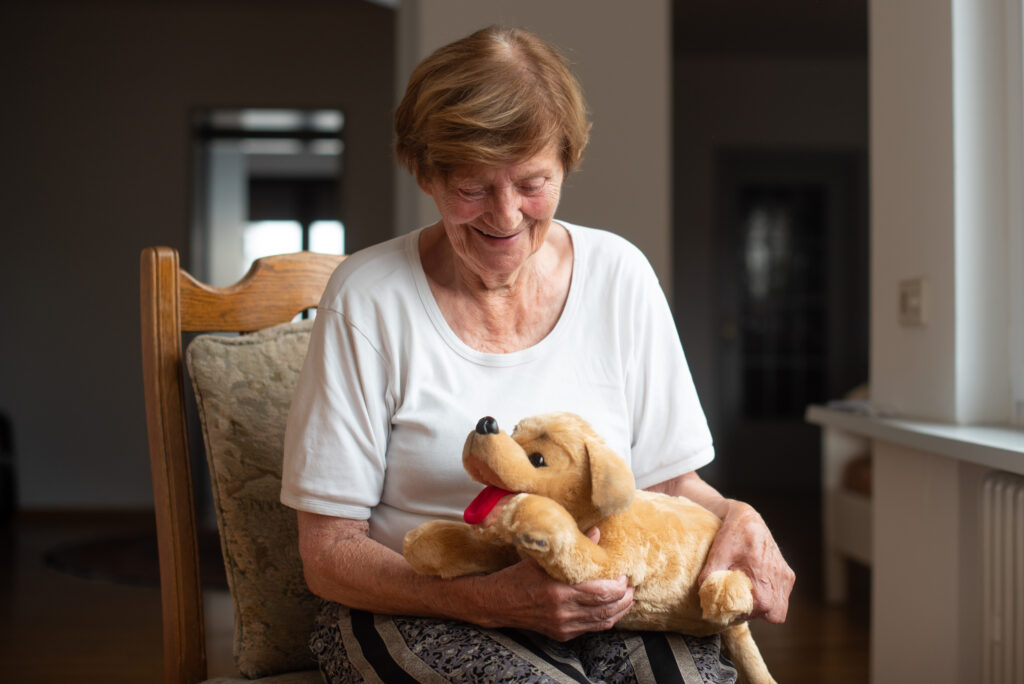
Become a Reseller
If you are interested in becoming a reseller of our RobiCare® products in your home country, we look forward to hearing from you. Please write to: georg.armbruester@altera-vita.de.
